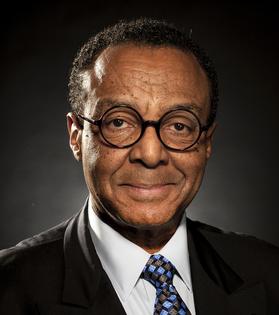Clarence Page: DEI on campus and in corporations is due for a change
Reports of the death of DEI, the widely praised and reviled — take your pick — employment policies to improve diversity, equity and inclusion, have been greatly exaggerated, as Mark Twain famously said of reports of his own death.
Still, in the wake of the Supreme Court’s decision to strike down affirmative action in colleges and universities, DEI hardly looks like it’s in the peak of health.
Various news reports indicate that much of corporate America is in retreat, cutting DEI jobs and outsourcing much of the work to consultants.
After George Floyd’s murder by police in 2020, we saw companies make big commitments to racial equity, hiring teams to improve DEI. But nowadays, the effort is beginning to experience big blowback, hardly discouraged by heated election-year politics.
On the academic side, the Massachusetts Institute of Technology became the first elite institution to scrap the DEI statements required of all prospective applicants to faculty positions. The decision was attributed to the school President Sally Kornbluth, and supported by the provost chancellor and all six academic deans, the school confirmed to UnHerd, a self-described “anti-establishment” website.
Mandatory diversity statements were axed, according to Kornbluth, because while the school remains committed to building an inclusive environment, “compelled statements impinge on freedom of expression, and they don’t work.”
The Supreme Court’s landmark ruling found race-conscious admissions violated the right to equal treatment under the Constitution; an increasingly outspoken contingent of critics argues that DEI creates inequalities of its own.
Some conservatives, as I have written, have blamed DEI for so many problems that the policy has spawned a crop of conspiracy theories, in which DEI has been blamed for all manner of miseries, including the Baltimore bridge collapse and Boeing’s safety problems, all without providing evidence, which only gets in the way of conspiracy theories anyway.
Meanwhile, dozens of anti-DEI bills are being considered by state legislatures across the country, and the program is already well positioned to be a wedge issue in this year’s presidential election. That’s a shift in attitudes in stark contrast to 2020.
And why not? This political year is already looking like a contest to see who can stir the most fear, resentments and suspicions behind their favorite candidates, especially in the presidential race. The sides are lining up in ways that have become all too typical since the civil rights era. I am reminded of how then-Sen. Hubert Humphrey, defended the 1964 Civil Rights Act against charges that it was a “quota bill.” As its lead author, Humphrey famously quipped, “I will eat my hat if this leads to racial quotas.”
Today, sarcastic conservatives predictably quip back that Humphrey would be dining on something like fried fedora or “filet d’beret” if he saw how much the original policies have changed.
Yet, for all DEI’s flaws, many companies routinely point to the “business case” for it, defending what they see in the numbers as a correlation between a diverse workforce and financial success. Companies with the highest racial, ethnic and gender representation are 39% more likely to financially outperform, according to a 2023 study by McKinsey & Co. involving more than 1,200 firms worldwide.
Similarly, in June, a study by the ratings agency Moody’s found that companies with higher ratings tended to have greater racial diversity on their boards and in their executive ranks.
DEI programs, in my experience, fail or become a pain in the neck to employees who feel they have enough meetings already. If the value of the program does not help either the work environment or profits, I agree that it should be questioned and, if possible, improved. In a very diverse country such as ours, it’s not just out of the goodness of our hearts that we try to make that diversity work on behalf of a better workforce and healthier profits.
Yet, much of those benefits are shrouded in fears that women and minorities are just looking for a free giveaway. My response is to recall a 1960s “opportunity anthem,” as I call it, by James Brown, on the flip side of his better known hit, “Say it loud, I’m black and I’m proud.”
Its refrain: “I don’t want nobody to give me nothing. Just open up the door. I’ll get it myself.”
Thanks, Brother James. Rest in peace — and power.
(E-mail Clarence Page at cpage@chicagotribune.com.)
©2024 Clarence Page. Distributed by Tribune Content Agency, LLC.
(c) 2024 CLARENCE PAGE DISTRIBUTED BY TRIBUNE MEDIA SERVICES, INC.
























Comments